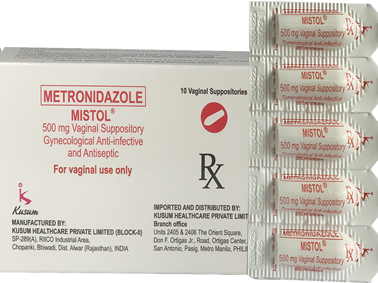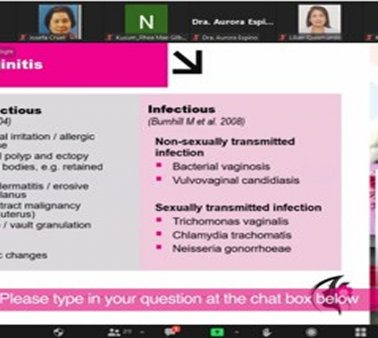Understanding Alzheimer’s Disease
Alzheimer’s disease is a progressive and irreversible brain disorder that damages the brain cells, slowly causing loss of memory and thinking skills, and eventually, the ability to perform simple tasks.1
Alzheimer’s is commonly late-onset, with symptoms first appearing in a patient’s mid-60s, although the disease may still occur in people in their 30s or later in early-onset Alzheimer’s.1 Aside from age, family history and genetics are also factors that may contribute to developing the disease. Other risk factors may include head injury and cardiovascular problems.2
Memory loss is one of the first and the most common sign of Alzheimer’s disease. Solving simple problems and completing familiar tasks may also become more challenging. People living with Alzheimer’s may also be more confused with time or place, have trouble with words, misplace things and be unable to retrace steps, and experience mood and personality changes.3
As Alzheimer’s is common for older people, some of its early signs may be confused with typical age-related changes. When you notice one or more signs in yourself or another person, it is better to be certain and be evaluated by a doctor. With early detection, you can explore treatments and lifestyle changes to relieve symptoms and possibly slow the progression of Alzheimer’s.3
References:
- US Department of Health and Human Services. Basics of Alzheimer’s Disease and Dementia: What is Alzheimer’s Disease. NIH: National Institute on Aging. https://www.nia.nih.gov/health/what-alzheimers-disease. Updated May 2017. Accessed 2020.
- Alzheimer’s Disease: Causes. NHS. https://www.nhs.uk/conditions/alzheimers-disease/causes/. Updated May 2018. Accessed 2020.
- 10 Early Signs and Symptoms of Alzheimer’s. Alzheimer’s Association. https://www.alz.org/alzheimers-dementia/10_signs. Updated 2020. Accessed 2020.
Living and Caring with Alzheimer’s Disease
Alzheimer’s disease and its symptoms are progressive, but the rate of its progression varies. Once the symptoms show, there are stages that provide an idea on how abilities change. 1 In early stage or mild Alzheimer’s, the affected person may still function independently although there are memory lapses, difficulties in simple tasks, and memory or concentrations problems. 1 Moderate or middle stage Alzheimer’s can last for years. Symptoms are more pronounced, and the individual will require a greater level of care, although the patient may still remember significant details about his or her life. 1 Severe or late stage is the final stage of the disease, and the symptoms are at its worse. Individuals lose the ability to have conversations, respond to their environment, and eventually, control movement. Significant changes in personality take place and individuals will need assistance with daily activities and personal care.1
Currently, there is no cure for Alzheimer’s. The chief goals of its treatment include maximizing quality of life and function in daily activities; enhancing thinking, mood, and behavior; fostering a safe environment; and promoting social engagement.2
After diagnosis and implementation of a treatment plan, cognitive and behavioral symptoms will change as the disease progresses, so regular evaluation should be performed to allow adaptation of treatment strategies. It is encouraged for the caregiver to accompany the patient at all times and to serve as a monitor for history-taking. In dealing with behavioral symptoms, early recognition and treatment can reduce the costs of care and improve the quality of life of the patient and the caregiver. In managing cognitive symptoms, there are drugs at present that treat the symptoms of Alzheimer’s disease, temporarily slow the worsening of symptoms, and improve the quality of life for patients and their caregivers.2
References:
- Stages of Alzheimer’s. Alzheimer’s Association. https://www.alz.org/alzheimers-dementia/stages. Updated 2020. Accessed 2020.
- Alzheimer’s Association. https://www.alz.org/professionals/health-systems-clinicians/management. Updated 2020. Accessed 2020.
Truths and Myths about Alzheimer’s Disease
Just like many other diseases, there are common misconceptions about Alzheimer’s disease. These misunderstandings may stand in the way of treatment and should be clarified to help those affected.
Myth: Alzheimer’s is a natural part of aging.
Truth: While there may be occasional memory problems as you age, Alzheimer’s is more than just occasional memory loss, such that it causes brain cells to malfunction and die. It may be difficult to determine which is a normal memory problem from Alzheimer’s, but there is relevant information that can help you tell the difference. If your memory problems concern you, it would be best to consult your physician.1
Myth: Only older people get Alzheimer’s.
Truth: Alzheimer’s is more common in people ages 65 and older, but in early-onset Alzheimer’s, it can strike people in as early as in their 30s. 1
Myth: If one of my parents develop Alzheimer’s, it means I will get it too.
Truth: Family history and genetics is a risk factor but not a guarantee of developing Alzheimer’s. Familial Alzheimer’s diseases was noted to account for only less than 5% of all Alzheimer’s cases.2
Myth: Alzheimer’s disease is preventable.
Truth: There is currently no treatment to prevent the development of Alzheimer’s, but proper exercising of the mind and body, healthy diet, avoiding stress, and staying socially active may help reduce your risks of developing the disease.2
Myth: If I get diagnosed with Alzheimer’s, my life is over.
Truth: The progression of Alzheimer’s varies per person, and even so, with early diagnosis and proper treatment and care, one can remain active for many years, which is why early diagnosis is important.2
References:
- Alzheimer’s Association. https://www.alz.org/alzheimers-dementia/what-is-alzheimers/myths. Updated 2020. Accessed 2020.
- Myths and realities about Alzheimer’s disease. Alzheimer Society Canada. https://alzheimer.ca/en/Home/About-dementia/Alzheimer-s-disease/Myth-and-reality-about-Alzheimer-s-disease. Updated October 2019. Accessed 2020.




